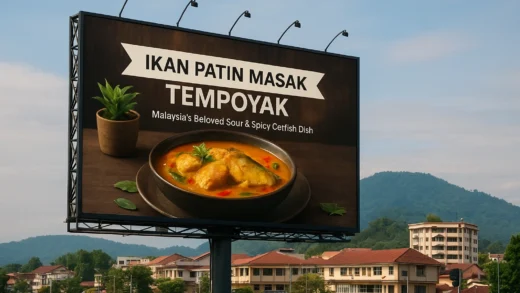5 Things to Know About Tun Mustapha Park, Sabah’s Largest Marine Park

Introduction
Malaysia is home to some of Southeast Asia’s most pristine marine ecosystems—and Tun Mustapha Park in Sabah is a standout example. As Malaysia’s largest marine protected area, this coastal paradise balances biodiversity conservation, community livelihood, and eco-tourism. Whether you’re a diver, nature lover, or eco-conscious traveller, here’s your guide to what makes Tun Mustapha Park so special.
1. Where is Tun Mustapha Park Located?
Tun Mustapha Park stretches across the northern coast of Sabah, covering parts of Kudat, Pitas, and Kota Marudu districts. It includes more than 50 islands and islets, such as Pulau Banggi and Balambangan Island, and spans a massive 2.4 million acres, making it the largest marine park in Malaysia.
This coastal zone is rich in marine biodiversity, including coral reefs, seagrass beds, and mangrove ecosystems—all protected under this park.
2. When Was It Established?
After over 13 years of planning and collaboration, Tun Mustapha Park was officially gazetted in 2016. This milestone was made possible by a joint effort between government agencies, WWF Malaysia, international NGOs, and local communities.
Its creation was a turning point in marine conservation in Malaysia, establishing sustainable tourism zones and regulated fishing areas for long-term ecological and economic resilience.
3. What Does It Protect?
Tun Mustapha Park is a haven for:
- Over 250 coral species
- More than 300 species of reef fish
- Endangered green turtles and dugongs
- Critical mangrove forests and seagrass beds
These rich marine ecosystems make it an essential part of the Coral Triangle, one of the most biologically diverse marine areas in the world.
4. Is Fishing Allowed?
Yes, but in designated sustainable fishing zones. The park is home to over 80,000 people, many of whom rely on the sea for their livelihood. The park allows controlled fishing practices that help avoid:
- Overfishing
- Blast fishing
- Destructive trawling
This zoning model ensures a balance between resource use and biodiversity protection.
5. Is It Open to the Public?
Yes! Tun Mustapha Park is open to visitors and promotes eco-tourism. Popular activities include:
- Snorkelling and scuba diving on vibrant coral reefs
- Island hopping to Banggi, Balambangan, and Maliangin Islands
- Turtle conservation and volunteering programs
- Mangrove forest tours and birdwatching excursions
- Homestay experiences with local communities
These activities generate sustainable income for the locals while educating visitors on marine conservation.
Top Things To Do at Tun Mustapha Park
- Snorkel over living coral reefs
- Paddle through mangrove estuaries
- Volunteer in turtle conservation
- Explore remote islands on day trips
- Stay with locals in authentic homestays
How to Get to Tun Mustapha Park
Step 1: Fly to Kota Kinabalu (BKI)
- Main airport in Sabah, connected to KL and other regional hubs
Step 2: Travel to Kudat, Pitas or Kota Marudu
- Drive or take a bus (approx. 3–5 hours from Kota Kinabalu)
- Or take a short domestic flight to Kudat Airport
Step 3: Boat Transfer
- Depart from Kudat Jetty or Pitas Jetty to reach the islands via local boats or eco-tour packages
Top Places to Stay
- 9 Huts on a Hill, Kudat – Eco-retreat with stunning sea views
- Banggi Island Lodge – Community-based lodging with cultural tours
- Tommy’s Place, Tip of Borneo – Rustic seaside escape near Kudat
- Balambangan Eco Retreat – Off-the-grid island stay
Nearby Attractions
- Tip of Borneo – Scenic cape where two seas meet
- Rungus Longhouses, Kudat – Explore indigenous culture and crafts
- Balambangan Island Caves – Explore prehistoric limestone caves
- Kalampunian Beach – Serene beach near Kudat
Top Food Spots Near Tun Mustapha Park
Tip Top Restaurant (Kudat)
- Known for Sabahan-style grilled seafood and beachside views
Restoran Ria (Kudat)
- Local favourite for butter prawns, sambal squid, and fish curry
Pulau Banggi Market Food Stalls
- Enjoy ultra-fresh seafood and local coconut-based dishes from fishermen
Final Thoughts
Tun Mustapha Park is a true gem of Sabah, where marine conservation and local community welfare go hand in hand. It’s a model of sustainable tourism in Malaysia, offering travellers the chance to explore natural wonders while supporting eco-conscious travel and local livelihoods.
So, if you’re planning a trip to Sabah, make Tun Mustapha Park part of your journey—for an unforgettable adventure that also makes a difference.







Comments are closed.